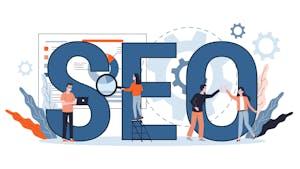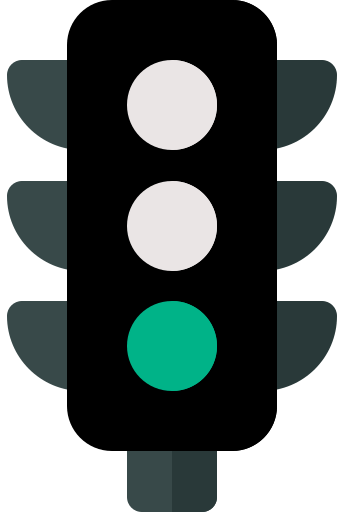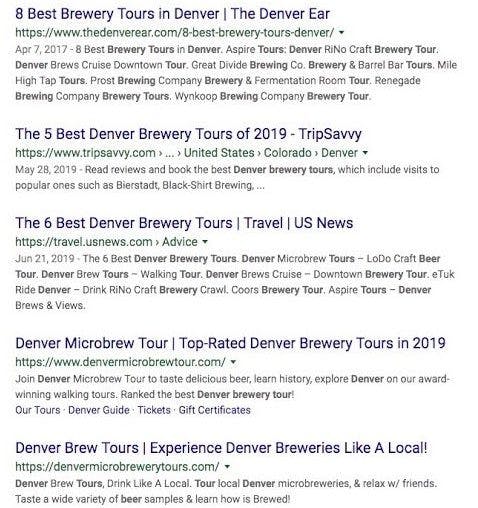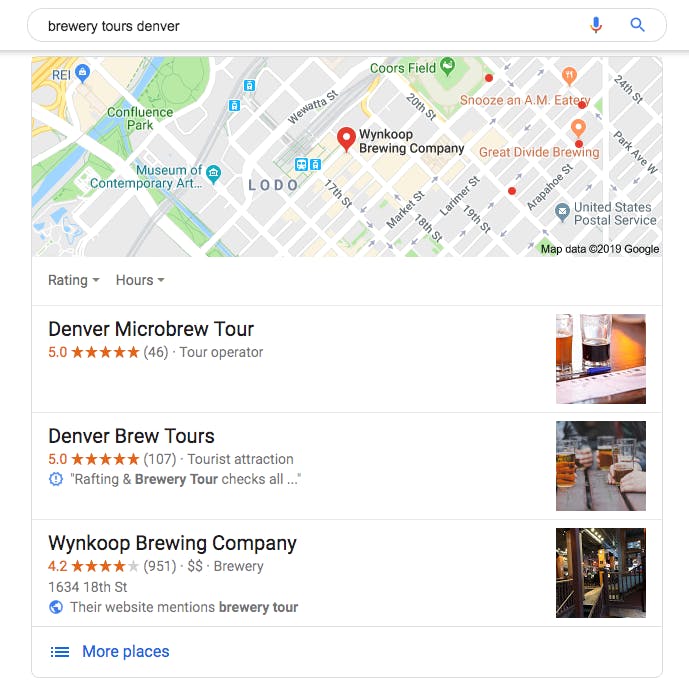- 11 minute read
- SEO
- Websites
Make a Good First Impression: Creating a Highly Converting Homepage
Beginner,
Intermediate
Get a behind-the-scenes-look into FareHarbor's 2024 season

SEO stands for search engine optimization. It’s the process of improving your website so that it attracts quality traffic and enjoys prime visibility on the search engine results pages (SERPs).
Most people understand SEO as a way to rank higher in search engines like Google. Fundamentally, it’s all about drawing visitors to your website with fresh and engaging content, increasing your bookings, and making your website easy to find online.
There are countless other statistics that speak to the importance of SEO and we’ll outline many of the other benefits to forming an effective SEO strategy in this guide and in our library of SEO guides. But first, let’s take a closer look at the fundamentals of SEO.
Search engines follow an algorithm that helps them determine how to interpret and rank every website on the internet. Google makes multiple small algorithm updates every day and rolls out more significant algorithm changes less frequently.
While Google doesn’t reveal the precise makeup of its algorithm, by researching SEO trends and tracking website performance, we get a solid understanding of what matters when it comes to online success. Components of the algorithm include on-page factors such as site structure, quality content and keywords, and off-page factors like links from other websites, social media marketing, reviews, and more.
 Other important aspects of SEO include traffic and organic results.
Other important aspects of SEO include traffic and organic results.
Traffic (quantity and quality): These are the visitors who come to your website. Striving for more traffic to your website is important, but this practice isn’t just about quantity because not all site traffic is created equal. Quality traffic means that visitors are coming to your site because they are genuinely interested in the tours or activities that you offer, which ultimately leads to bookings. Traffic volume is less important here than the types of people visiting your site. Writing for search intent is a key factor in improving your traffic quality and increasing conversion rates.
Organic results: This is any traffic you don’t have to pay for — think, anyone that lands on your website naturally — not from a paid advertising campaign, social media link, or another referral link. Organic traffic is better at delivering qualified traffic, and improving your SEO is the best way to increase organic traffic. Search Engine Land puts it well: “social media and paid ads might be traffic generators, but they are not long-term customer creators. The bounce rates are high, and the number of pages visited is often very low.” Simply put—organic is best!
 Practicing SEO is a great way to show up higher in search engine results and grow your organic traffic. Whenever you type a question or query into Google, the results you see below the paid ads are classified as “organic” results. In contrast, paid search is comprised of those businesses that pay for their ads to be listed at the top of the SERPs.
Practicing SEO is a great way to show up higher in search engine results and grow your organic traffic. Whenever you type a question or query into Google, the results you see below the paid ads are classified as “organic” results. In contrast, paid search is comprised of those businesses that pay for their ads to be listed at the top of the SERPs.
You might think that you have to shell out big bucks for one of those top spots, but keep in mind that while paid ads do score results, organic searches actually make up most of website traffic and are considered the most valuable traffic source when combined with a strong SEO strategy. Here’s why:
Earning one of those coveted top spots and increasing organic traffic takes time — and some focused SEO tactics — but concentrating on your SEO strategy leads to long-term, cost-effective results, so it’s well worth the effort.
Think about the last search query you entered into Google. The result you ultimately clicked on likely appeared on the first page of the SERP—the first 10 results—and you didn’t scroll to other results pages. This is why it’s so important to show up on the first page of Google search results and why gaining high visibility on search engines is exactly what we strive for when we think about and implement SEO.
The bottom line is simple: Higher ranking in SERPs means more people are exposed to your website. More visibility equals more clicks and site traffic, which leads to more revenue for your business. The more people that visit your site, the more bookings you receive on your tours and activities. Score!
There are a number of SEO techniques to increase your online visibility (and you’re sure to become a pro in no time!), but one of the best ways to climb up the SERPs is by adding high-value, relevant keywords to your website. Proper use of keywords will help your site to rank for particular search queries by communicating to Google what your site is all about. We go over keyword do’s and don’ts and best practices in a later guide so you can focus on queries that will garner organic results.
 By targeting queries and keywords that are specific to your location, like “the best hiking trails in Aspen,” you can increase your chances of showing up on the first page of the SERPs for the people who are most likely to book your tours and activities—the people right in your backyard!
By targeting queries and keywords that are specific to your location, like “the best hiking trails in Aspen,” you can increase your chances of showing up on the first page of the SERPs for the people who are most likely to book your tours and activities—the people right in your backyard!
Local SEO helps you promote tours and activities to people who are searching for them right here, right now. A local search is the difference between the queries “brewery tours” and “brewery tours Denver.” A quick local search reveals the brewery tours that rank in the Local Pack, the block of results that displays below the map on the SERP.
All of the information found in the local block below the map comes from your company’s Google Business Profile. Making sure your Profile is up to date is a huge factor in ranking for local searches and gaining local visibility, and you do have to set one up for your business (Google doesn’t automatically do it for you), so be sure to check out our article on why you need a Google Business listing.
Although they may initially seem like a small piece of the pie, online reviews are another great way to boost local SEO and are prominently featured in map listings and Google. Apart from creating a strong sense of trust for potential customers, reviews also affect how Google ranks your site.
Visibility is all about remaining in the public’s eye in a way that makes an impression. While other marketing platforms like TV ads, business cards, and flyers disappear over time, the internet allows consumers to access your information over an indefinite period of time. SEO can help your brand enter the internet spotlight—and stay there.
When it comes to planning trips and booking tours and activities, customers want to know that they can trust the company they’re buying from, particularly because travelers often pay for services well before the activity or trip they’ve booked. They’re looking forward to the experience your business provides—and it’s all thanks to your well-designed, easy-to-navigate, secure website. You can use SEO to create and maintain a better site in a few ways:
Site structure is just what it sounds like: how you organize the content and flow on your website. A well-structured site means users will be able to find their way around more easily and Google can index your URLs with ease.
Think of site structure as a guide for Google. It tells it which links to crawl, what your site is about and what it’s selling, and which pages or posts are most important. If your site is structured incorrectly, Google won’t know which pages to rank, and you could end up competing against yourself on the SERPs within different pieces of content on your website. There are several ways to improve site structure, like organizing category pages, improving your internal linking structure, and more.
Google, in its never-ending quest to become smarter, has learned how to identify positive and negative user experiences, and a favorable user experience has actually become a key element to a website’s success.
From incorporating keywords that satisfy search intent — the reason behind a searcher’s query — to catching users’ attention with enticing meta descriptions and writing content that is helpful to the user, SEO and UX best practices go hand in hand and can improve your site’s ranking.
Backlinks (also known as inbound links) are links from one website to another, and they can help you rank higher on the SERPs by lending your site authority. A backlink from a quality website is like an endorsement that says: “This is a trustworthy site.”
The best backlinks come from relevant and authoritative websites within your industry. Building backlinks starts with creating a valuable piece of content that would be seen as an asset that other websites want to link to, such as area guides, infographics, blog posts, videos, and more.
When a customer enters your website, they should be able to find where to book your tours or activities right away. In fact, when a site is easily navigable for humans, search engines have an easier time crawling it as well!
When planning out your website navigation, keep these three principles in mind: Simple, clear, and consistent. Make it as easy as possible for a potential customer to find what they are looking for and book with ease; good site structure removes any unnecessary roadblocks or steps in this process.
Don’t overdo it with endless menu drop-downs and loads of content. Do link between product pages (your tour or activity) and related content pages (FAQ, blog posts, etc.). And above all, always satisfy user experience before focusing on search engines.
Perhaps the most important aspect of trustworthiness is a secure booking platform so your customers know that their money and information are safe. If your company is on a FareHarbor site, your website is protected with a technology known as Secure Sockets Layer (SSL). This ensures that the data passing between a web server and the user’s internet browser remains private.
Even if you are not on a FareHarbor site, our online checkout process is securely encrypted for your customers’ safety, but there are still ways that hackers can compromise your website. For more information on adding SSL to your site, check out our guide to SSL.
When it comes to your competition, having a secure and trustworthy site is the best way to gain bookings and become a standout in your local market.
Staying up to date with SEO is the best way to maintain your website’s ranking on Google while satisfying both users and search engines. If you’re ready to hit the ground running, FareHarbor offers many valuable resources so you can improve your SEO strategy and ensure that your efforts pay off.
If you’re feeling overwhelmed, don’t worry—we have more guides that take a deeper dive into the topics mentioned here! From SEO trends and tips to our handy SEO checklist, we’ve got you covered.